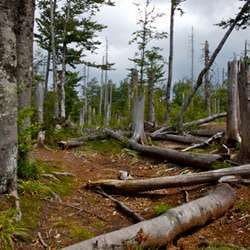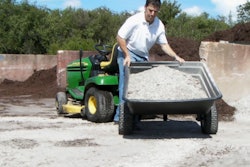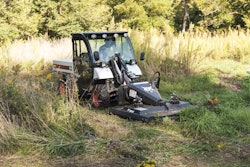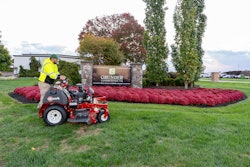
American Forests, through the Global ReLeaf program, in partnership with local organizations in 14 states and six countries will plants more than 1.6 million trees in 2014.
Through the program, American Forests will reforest 33 project sites damaged by wildfires, pests, disease, deforestation, natural disasters and more.
Since 1990, the American Forests Global ReLeaf program has completed restoration work in all 50 states and 44 countries around the world, planting more than 45 million trees in areas of crucial need.
Some notable plantings stand out among this year’s projects:
- Two projects — one in West Virginia with 55,000 trees and another in Ohio featuring 7,000 trees — will restore former minefields. Surface mining activities cause soils to become heavily compacted by the massive machinery used to cover and re-contour the landscape. In many cases, hydrology is altered and the organic matter in the topsoil is largely lost, creating less-than-ideal growing conditions for trees. Projects such as these will further our expertise in reclaiming mined land for forests and which planting methods are most effective.
- For the first time, American Forests will incorporate major protection measures in Honduras, Minnesota and the project in Ohio. The Honduras project features 30,000 trees being planted across 180 acres of land degraded by deforestation and unsustainable agricultural practices. Protection elements in Honduras include holistic pest control, awareness building activities to discourage illegal logging and sustainable crop management. To reduce site disruption and tree mortality from deer browse, the projects in Minnesota and Ohio will feature seedling protection tubes.
- American Forests continues its 17 years of work in the Lower Rio Grande Valley National Wildlife Reserve in Texas. In a project site spanning 180 acres, American Forests and its partners will plant 50,000 trees to offset forest fragmentation in one of the country’s most biologically diverse regions. The project will also restore wildlife habitat, including that of ocelot and jaguarundi, two endangered big cats found along the U.S.-Mexico border.
- Two international projects feature primate habitat restoration. In the Atlantic Forest of Brazil, American Forests is working with a local group to 5,750 trees to connect fragmented habitat for the endangered golden lion tamarin. More than 35,000 trees will be planted in the Batang Toru Forest of Indonesia to restore habitat of the Sumatran orangutan, whose









